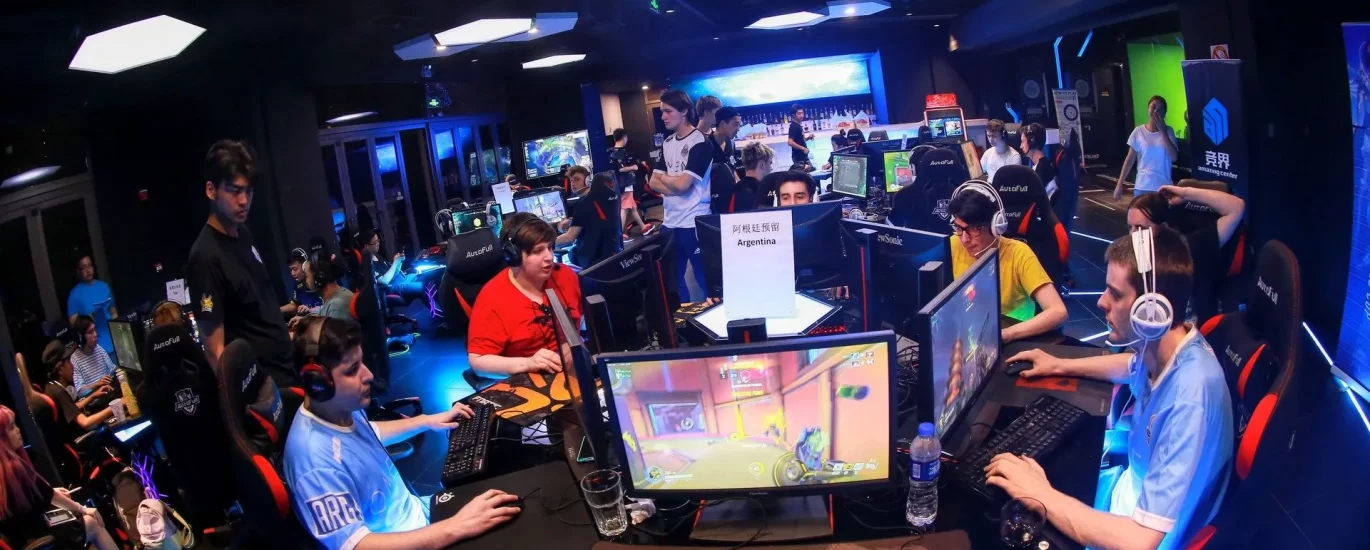In the last decade, esports has exploded into a global phenomenon. What began as grassroots LAN tournaments has transformed into sold-out arenas, multimillion-dollar prize pools, and a thriving digital culture. With this evolution, a once-overlooked facet of the gaming world has rapidly emerged alongside it: esports betting.
Today, wagering on competitive gaming is no longer a fringe activity—it’s a global, regulated, and increasingly sophisticated industry that is redefining how fans interact with the games and teams they love. As esports becomes a legitimate alternative to traditional sports, betting is becoming its financial and emotional amplifier.
A Culture of Engagement
The appeal of esports betting lies not just in the potential to win money, but in elevating the fan experience. Traditional sports fans have long placed bets to add excitement to their favorite matchups, and the same psychology applies here. Esports fans are already deeply invested—emotionally, intellectually, and often financially through in-game purchases or fantasy leagues. Betting is simply a natural extension.
What makes esports betting particularly compelling is its interactivity and speed. Matches are shorter, outcomes more volatile, and player performances can swing wildly. This fast-paced environment makes live or “in-play” betting particularly thrilling. Imagine betting on the next clutch in CS2, the first Baron in League of Legends, or predicting which agent will top frag in a VALORANT map—each decision is tied to the fluid dynamics of gameplay.
The Rise of Platforms and Partnerships
Major bookmakers like Betway, Pinnacle, and GG.Bet have integrated esports offerings into their core services, reflecting the growing demand. At the same time, esports-specific platforms are emerging, designed with gamers in mind—featuring sleek UIs, Twitch integrations, and game-specific betting markets.
Some game publishers, once wary of betting’s reputation, are beginning to acknowledge its role in fan engagement. Riot Games, for instance, now works with data providers and legal betting services to ensure competitive integrity in VCT (VALORANT Champions Tour) events. Even sponsors are evolving: from energy drinks and PC hardware to crypto wallets and betting brands.
What Fans Are Betting On
Esports betting has matured well beyond simple match-winner wagers. Today’s fans can access an array of markets, including:
-
Correct score predictions (e.g., 2-0, 2-1).
-
First blood / first kill.
-
Map-specific props like spike plants, round wins, or weapon usage.
-
Player performance bets—most kills, MVP, or total assists.
-
Outright bets on tournament winners or MVP awards.
Some platforms also offer accumulator bets (multi-match predictions), boosting potential returns while adding complexity and risk.
The Legal Landscape: Still Evolving
Esports betting exists in a patchwork of global regulations. While the UK, Australia, and much of Europe have legalized and regulated it under broader sports betting laws, other regions—including large parts of the United States—still treat it cautiously.
In the U.S., esports betting legality is decided at the state level, with New Jersey and Nevada among the few allowing limited esports wagering under strict oversight. Countries like Sweden, Canada, and Brazil are exploring regulatory updates to embrace esports under more modern betting frameworks.
Meanwhile, unregulated or “gray market” betting continues to operate, especially in countries without clear legal guidance. Here, players risk poor consumer protections and potential fraud.
Challenges the Industry Must Face
Despite its rapid growth, esports betting still faces significant challenges:
-
Integrity and Match-Fixing: Like any competitive industry involving money, esports has faced incidents of match-fixing, especially at lower-tier tournaments. Ensuring player accountability and monitoring suspicious betting patterns is crucial.
-
Underage Access: Given esports’ popularity among younger demographics, betting platforms must invest heavily in identity verification and age-gating to prevent underage gambling.
-
Game Publisher Policies: Not all publishers welcome betting. Some enforce strict terms of service prohibiting gambling associations, which can hinder integration and monetization partnerships.
-
Responsible Gambling: As the fanbase matures, so too must the safeguards. Self-exclusion tools, educational campaigns, and AI-based addiction monitoring are becoming standard.
Esports, Crypto, and the Future of Wagering
One of the most fascinating intersections in this space is between esports and cryptocurrency. Some platforms already allow bets in Bitcoin, Ethereum, or other altcoins, providing fast and borderless payments. Blockchain tech also powers decentralized prediction markets and tokenized betting platforms—potentially offering fairer odds, open-source transparency, and global accessibility.
Meanwhile, skin betting—where users wager cosmetic in-game items—is a controversial corner of the scene. Once rampant in titles like CS:GO, skin betting has drawn regulatory crackdowns due to its accessibility to minors and lack of oversight. While still present, most legitimate betting platforms have pivoted away from skins in favor of fiat and crypto betting under official licenses.
A Glimpse Ahead
The future of esports betting will likely mirror the future of esports itself: global, immersive, and increasingly embedded into mainstream culture. As broadcasts integrate real-time stats, odds, and interactive interfaces, fans will be able to bet while they watch—much like sports viewers can today via platforms like FanDuel or DraftKings.
Additionally, we can expect:
-
Smart bets powered by AI predictions and machine learning.
-
Micro-betting on individual in-game moments.
-
Fantasy esports continuing to blend with wagering formats.
-
Betting gamification, where rewards and loyalty programs enhance user retention.
Conclusion: More Than Just a Bet
For many fans, esports betting isn’t just about profit—it’s about passion. It turns a digital match into a visceral experience, transforming viewers into participants. With proper oversight and evolving technologies, it has the potential to become a core pillar of the esports ecosystem, enriching both fans and the industry alike.
As esports continues to redefine what it means to be a fan, betting stands as one of the most powerful tools to transform spectators into stakeholders—where every round, every play, and every clutch holds not just emotional weight, but tangible value.































